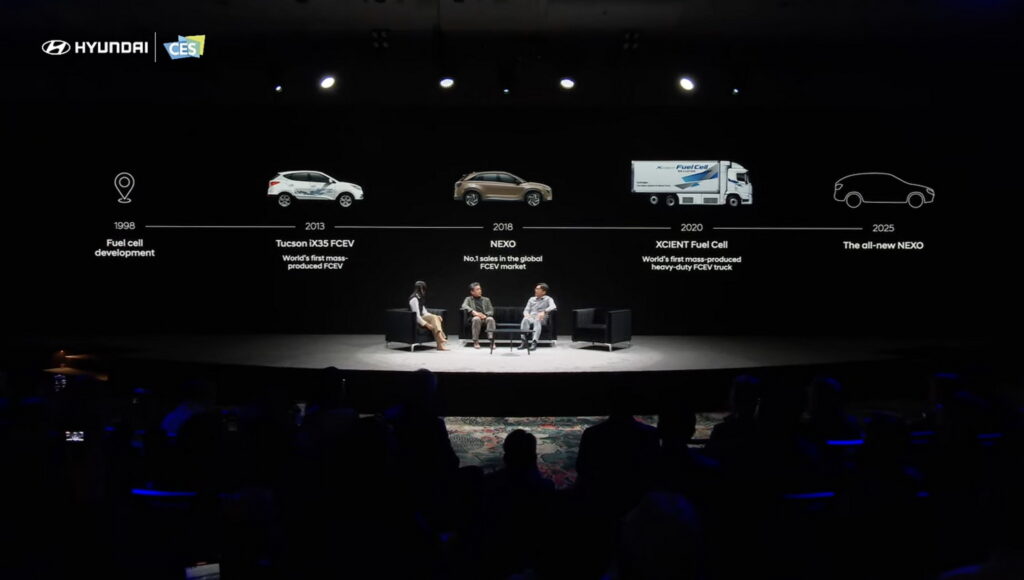CES may be better known for the latest and greatest in consumer electronics, from AI-backed gadgets to transparent microLED displays. Yet, the Las Vegas event has also become the springboard for many technological announcements in the automotive sector.
For Hyundai, it was a chance to reassure the world that hydrogen propulsion is still a viable option for many sectors, including non-automotive and private passenger vehicles. The South Korean manufacturer announced two new hydrogen production processes called Waste-to-Hydrogen (W2H) and Plastic-to-Hydrogen (P2H), which essentially transforms our crap (both organic and manufactured) into environmentally sustainable fuel.
As part of its hydrogen push, the carmaker also confirmed that the next-generation Nexo fuel-cell (FCEV) SUV will be coming in 2025. The new Nexo had been delayed with conjecture suggesting technological development, demand, and viability hurdles were the key reasons for the holdup.
More: Alfa Romeo Milano Debuts In April, Here’s What We Know About The New Baby SUV
Illustrations Josh Byrnes / Carscoops
Fortunately, it appears that Hyundai’s partnership with materials science firm W.L. Gore & Associates and promising developments with advanced polymer electrolyte membranes (PEMs) means that the all-new Nexo is back on track.
Key details surrounding the second-generation Nexo are still relatively slim; however, well-resolved sketches (albeit unverified) depicting the new Nexo hit the web in September 2022.
With the aid of our digital crayons, we’ve illustratively brought these sketches to life, revealing a dynamic appearance seemingly influenced by the Tucson and Hyundai Ioniq 7 electric SUV.
At the front, a full-width LED DRL band mimics that of the latest Sonata and Staria minivan, as does the low-mounted main headlamps.
An athletic profile features pumped haunches, chiselled sheet metal surfacing and a floating D-pillar featuring slim vents for improved aerodynamics. Rear styling consists of a horizontal LED taillight band connecting the silver D-pillar inlays and hard-cut corner elements where plastic cladding meets the painted bodywork.
Powertrain and driving range
Fuel cell specifications are still unknown, yet they’re tipped to improve the existing setup significantly. For reference, the current car runs with three identical tanks with 52.2 liters of hydrogen per tank, a power output of 161 horsepower (120 kW) and 291 pound-feet of torque (395 Nm) and an EPA-rated range of 380 miles (611 km). Reports indicate the new car will increase its range to 497 miles (800 km).
More: Over 60 New Electric Cars, Trucks And SUVs Coming In 2024
The Nexo essentially has the hydrogen SUV market to itself; sure, BMW has an iX5 in development, and then there is Toyota’s Mirai sedan, yet it’s a small segment with many pundits still seeing hydrogen as a risky road for passenger cars with the scarcity of refueling stations.
Would you consider a hydrogen fuel cell vehicle if the infrastructure was better? We would love to hear your opinions in the comments below.
Note: The illustrations in this article are not related to nor endorsed by Hyundai














